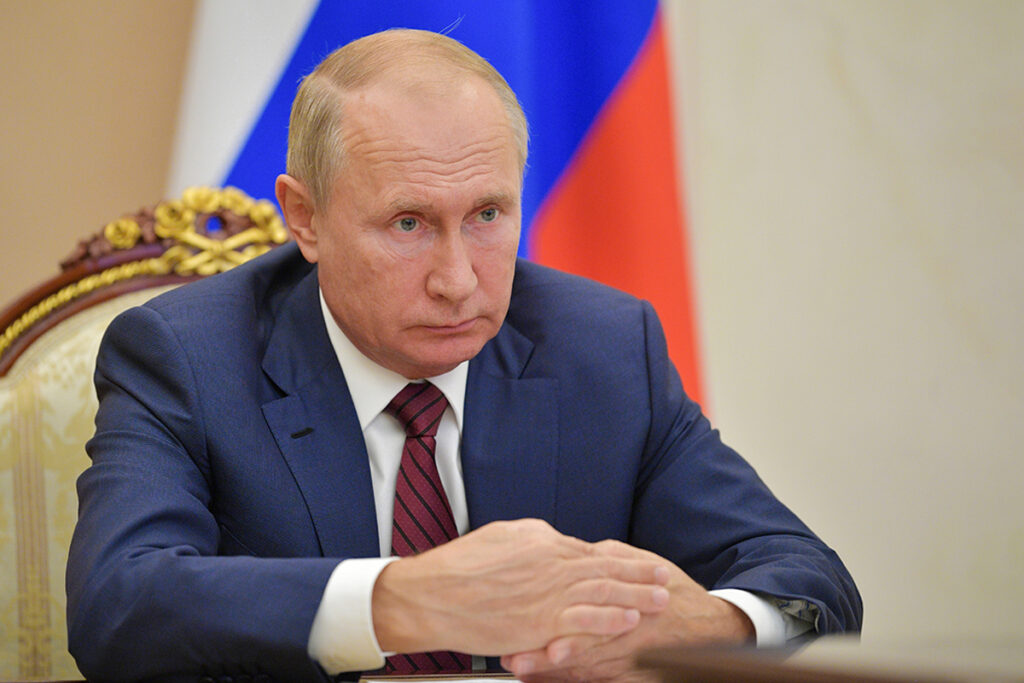In a move signaling Russia’s renewed interest in Middle Eastern geopolitics, President Vladimir Putin is set to embark on a critical journey to the United Arab Emirates and Saudi Arabia this Wednesday. The visit, primarily aimed at discussing the escalating Israel-Hamas conflict, marks a rare international engagement for Putin since the issuance of an arrest warrant by the International Criminal Court (ICC) in March, related to his alleged role in the deportation of Ukrainian children.
This diplomatic venture, Putin’s fifth overseas trip post-ICC warrant, strategically circumvents potential arrest concerns as neither the UAE nor Saudi Arabia are signatories to the ICC’s founding treaty. His previous avoidance of a summit in Pretoria over arrest fears underlines the cautious approach Putin has adopted in his foreign travels.
The talks are expected to delve into the complex dynamics of the Israel-Hamas war. Russia, maintaining a uniquely balanced relationship with both Israel and Hamas, emerges as a potential mediator. The trip comes at a critical juncture as Qatar’s efforts in negotiating a hostage swap between Israel and Hamas – a prerequisite for a second humanitarian pause – have hit a stalemate, giving Putin an opportune moment to intervene.
Amidst this backdrop, Putin’s itinerary includes a significant meeting with Iranian President Ebrahim Raisi. Iran, a key player in the region, has faced challenges in persuading Gulf states to extend more support to Hamas, such as implementing an oil boycott against Israel. Iran’s alleged involvement in attacks on international shipping in the Red Sea and its support for Russia in Ukraine with military supplies further adds complexity to the regional geopolitical landscape.
Russia’s stance in the crisis is two-fold. On one front, it offers itself as a mediator in the Middle East, leveraging its relationships with diverse actors in the region. On the other, Moscow aims to critique and counterbalance the United States’ solo mediation efforts, which it perceives as overlooking the traditional role of the Quartet – comprising the EU, US, Russia, and the UN. Furthermore, Russia underscores what it views as Western double standards, juxtaposing the West’s silence on alleged Israeli war crimes against its vocal criticism of Russian actions in Ukraine.
Adding to the diplomatic fervor, a recent visit by a Hamas delegation to Moscow, led by Mousa Abu Marzook, reinforces Russia’s active engagement in the matter. These talks highlight Russia’s willingness to maintain open channels with various Middle Eastern entities.
Economic interests also feature prominently in Putin’s agenda. In Saudi Arabia, discussions with Crown Prince Mohammed bin Salman will encompass trade, international politics, and humanitarian aid. Meanwhile, in the UAE, Putin is slated to meet Sheikh Mohamed bin Zayed Al Nahyan to discuss trade, energy, tourism, and education. The ongoing conflict between Israel and Hamas is set to be a pivotal topic in both these high-level meetings.
As Putin steps onto the Middle Eastern stage, his visit not only underscores Russia’s strategic interests in the region but also highlights the intricate web of diplomatic, economic, and political ties that continue to shape the ever-evolving Middle Eastern geopolitical landscape.


